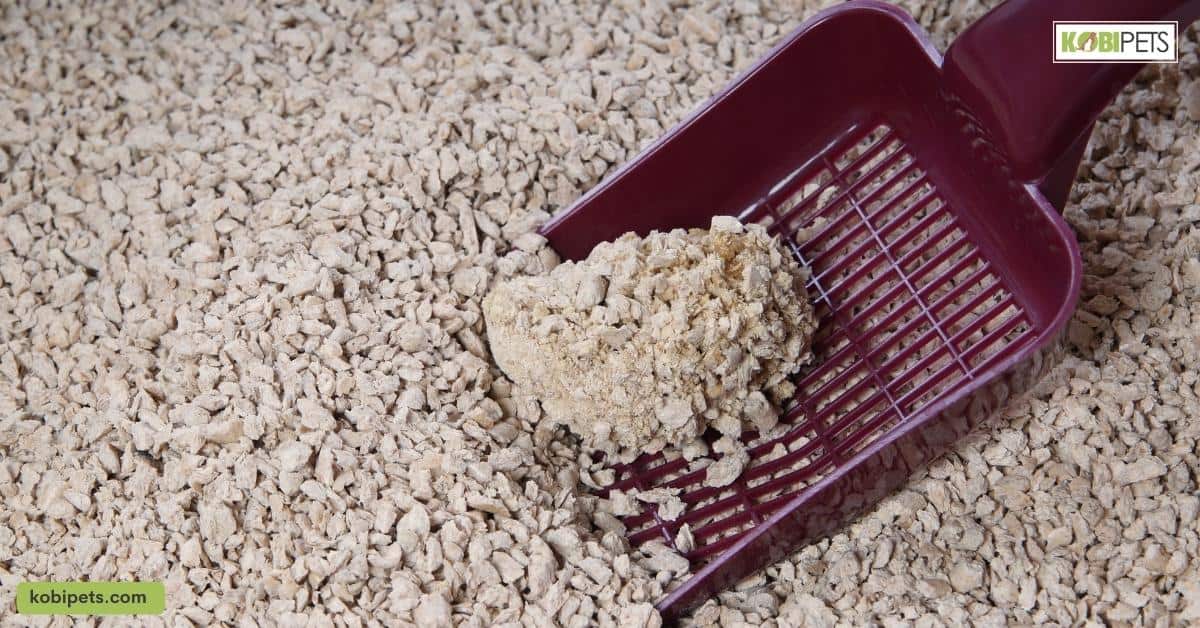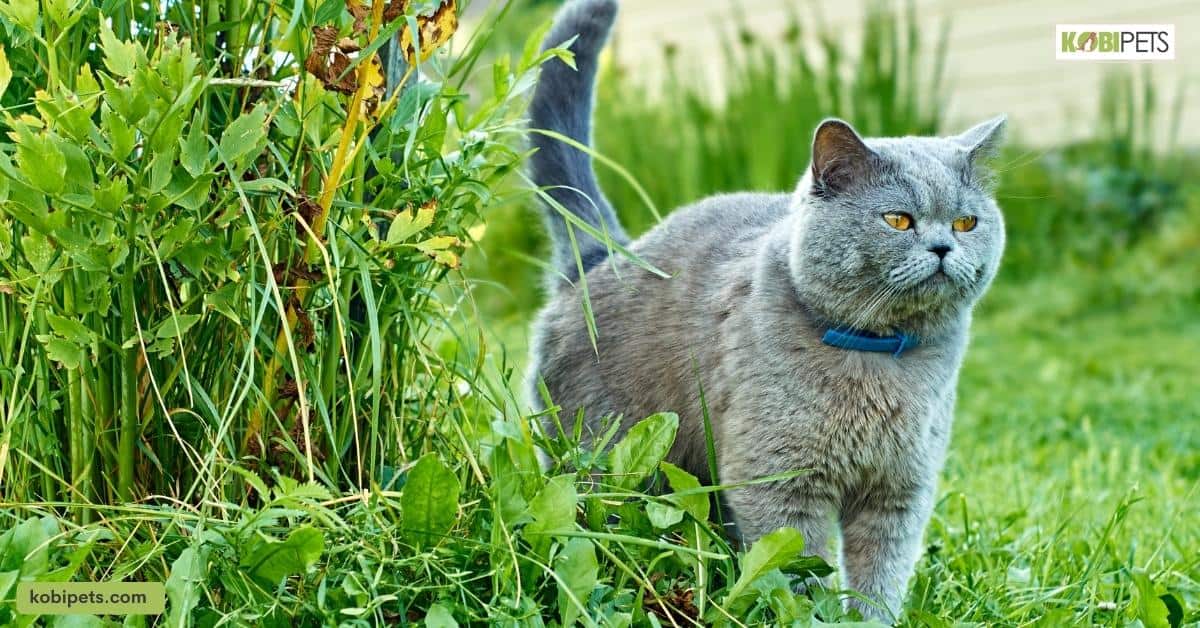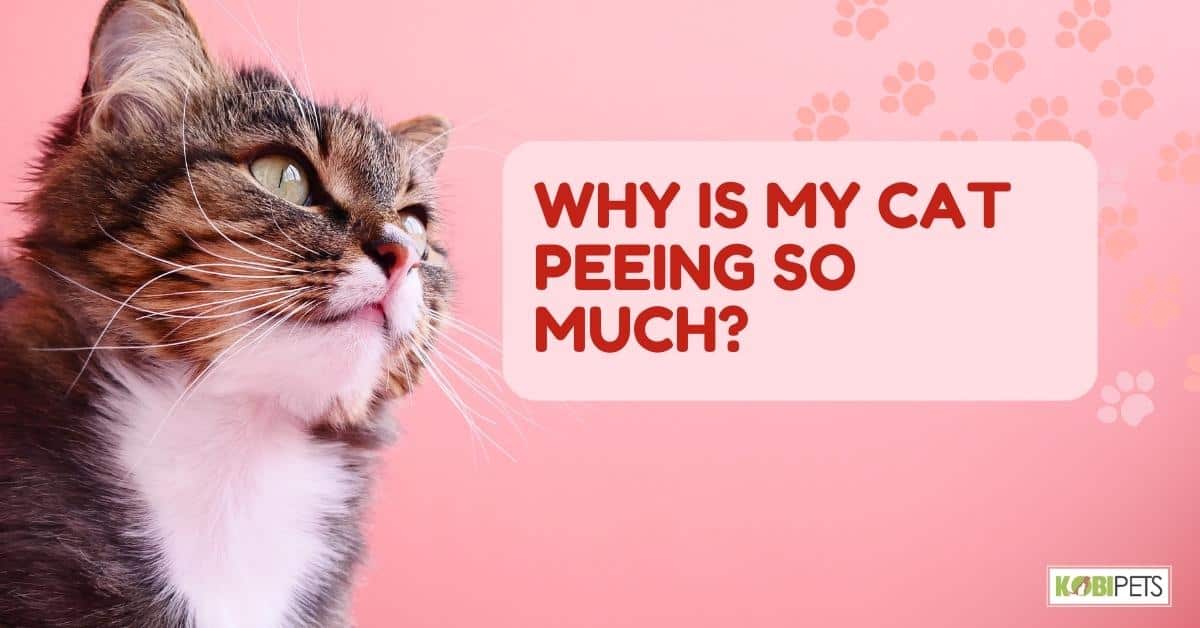
Excessive urination in cats can be caused by medical conditions, lifestyle and environmental factors, as well as behavioral issues. If you’ve noticed your cat peeing more often than usual or in unexpected places, it could be a sign of an underlying medical condition or even a behavioral problem. Both can be concerning and require different approaches to treatment.
In this article, we will explore the common causes of excessive urination in cats, ways to identify the cause, and how to prevent and treat it. By understanding why your cat is peeing so much and taking appropriate steps, you can help keep them feeling healthy and happy.
Understanding Why Your Cat is Peeing so Much
There could be several reasons why your cat is peeing more than usual. Stress, urinary tract infections, urinary crystals, and kidney or liver disease are all possible causes. Urine marking is also common in cats and could be the cause of increased bathroom habits.
All of these issues should be addressed with a veterinarian as they can lead to severe health complications. In the meantime, providing a clean litter box and plenty of water for your feline friend may help reduce symptoms until you can reach out to the vet for assistance.
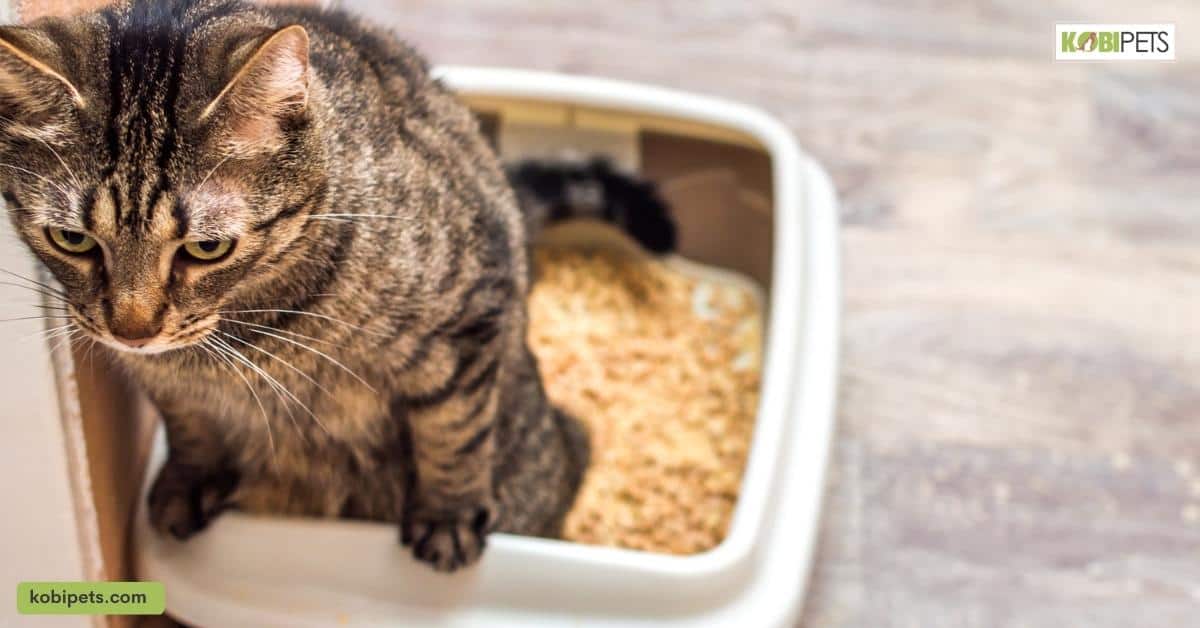
Common Causes of Excessive Urination in Cats
Cats normally have a finite amount of urine, and when that output increases beyond what is considered typical, it is known as excessive urination. This uncharacteristic behavior can often be associated with medical conditions such as diabetes or kidney disease, and in some cases may indicate a urinary tract infection.
Additionally, lifestyle and environmental factors including stress, dietary changes, exposure to toxins, or trauma can result in increased need and frequency to void the bladder. Medication side effects are another known cause of excessive urination, particularly diuretics which help the body flush out excess fluids from the bloodstream.
If your cat begins urinating more than usual, it is important to seek veterinary attention for evaluation and diagnosis to help determine the underlying cause.
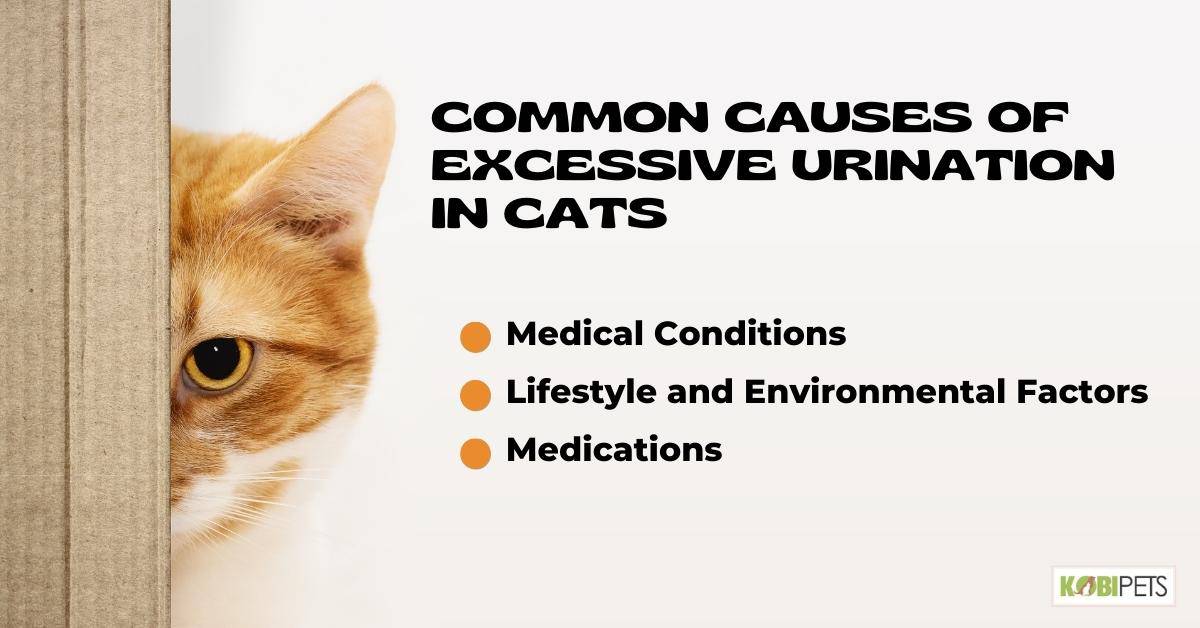
Common Causes of Excessive Urination in Cats
1. Medical Conditions
Urinary tract infection
Urinary tract infections (UTIs) in cats can cause excessive urination and are a very common issue for feline friends around the world. UTIs often result in frequent trips to the litter box as cats attempt to deal with infection-related discomfort.
Other symptoms may include bloody or cloudy urine as well as decreased appetite. If your cat is exhibiting any of these signs, it is important that you take them to see a vet as soon as possible. Treating a UTI early is key to preventing further issues, so don’t hesitate to get your kitty checked out and treated promptly.
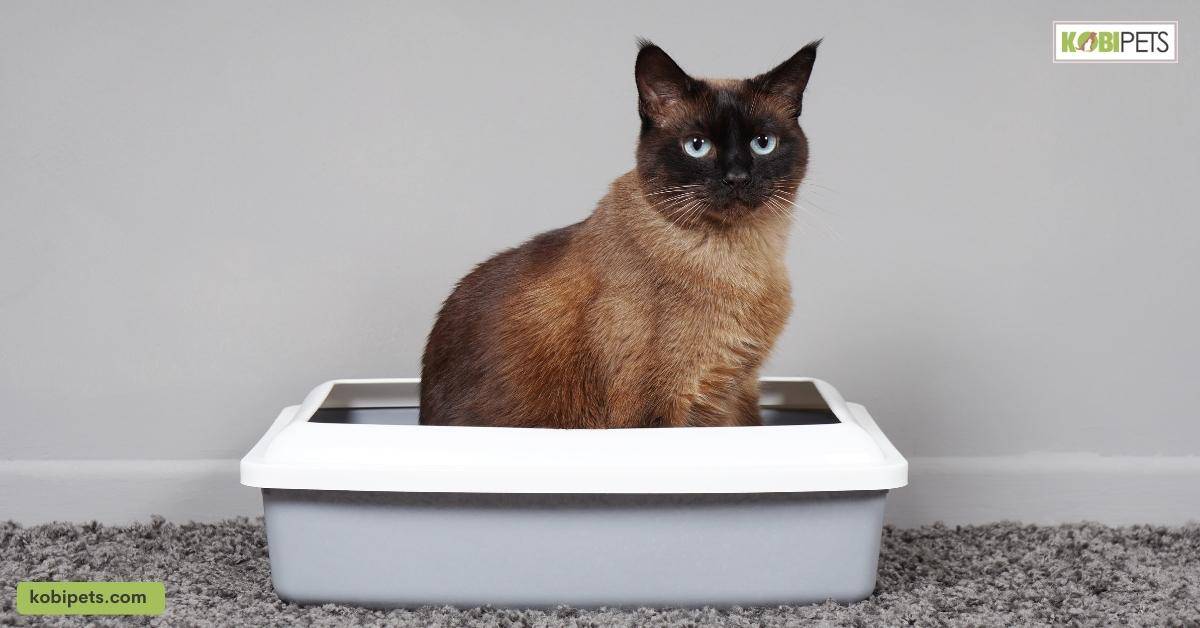
Kidney disease
Excessive urination in cats is often an indication of underlying medical issues, one of which can be kidney disease. Kidney disease is a progressive health problem caused by damage to the kidneys’ ability to filter waste products from the blood.
As the condition worsens, various problems can arise – increased urination being just one of them. Cat owners should keep an eye out for any signs of kidney disease, such as excessive thirst and drinking, weight loss, increased appetite, poor coat and skin appearance, vomiting, and bad breath.
If you suspect your cat may have kidney disease or that excessive urination could be a symptom of another medical issue, make sure to contact your vet right away for further guidance.
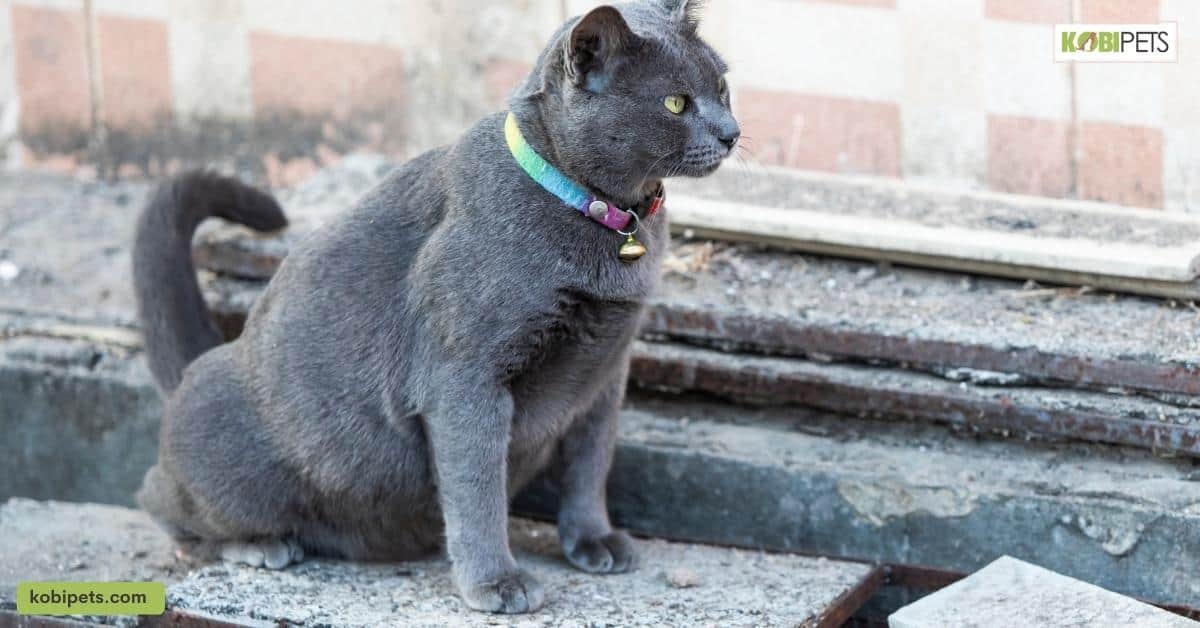
Diabetes
Diabetes is one of the common medical conditions to cause excessive urination in cats. Diabetes is due to a decreased ability to produce or process insulin, resulting in high levels of glucose in the blood.
Symptoms associated with diabetes in cats may include increased water intake, increased urination frequency, and an excessive desire for food. Depending on the type of diabetes, treatment includes dietary changes or daily doses of insulin injections.
If left untreated, diabetes can be life-threatening. Therefore, it is important to pay attention to any changes in your cat’s habits as these may be signs and symptoms of a serious medical condition such as diabetes.

2. Lifestyle and Environmental Factors
Dirty litter box
While lifestyle and environmental factors are common causes of excessive urination in cats, having a dirty litter box may be one of the most influential factors. Cats are fastidious creatures and will opt for other surfaces if their litter box remains unclean.
This can lead to problematic behaviors like inappropriate urination outside of the litter box. To prevent this from happening, it’s important to scoop the box daily, clean it completely at least once per week, and provide sufficient litter boxes: one per cat plus an extra in a multi-cat household.
Stress
Excessive urination in cats is a common issue that can be stressful for both the pet and the pet owner. It is important to consider lifestyle and environmental factors when trying to identify the root cause of this common problem.
Identifying what might be causing your cat’s excessive urination can help you to better manage and alleviate the symptoms. Stress due to lifestyle or environment is one of the most overlooked causes of excessive urination in cats, with sources of stress potentially including sudden changes in routines, housemates, diet, living environments, or the introduction of another pet.
Seeking professional advice from your veterinarian on how to help minimize your cat’s stress and adapting management strategies may lead to a successful resolution.

Lack of hydration
One of the common causes of excessive urination in cats is a lack of hydration, caused by lifestyle and/or environmental factors. This happens when cats are not taking in enough fluids to counteract their body’s natural processes, such as physical activity and temperature regulation.
If a cat spends too much time in an air-conditioned or heated place, this can contribute to dehydration since it may not feel the urge to drink more than usual. Moreover, some cats may be feral or rarely receive human attention and don’t have easy access to fresh water; or their owners may simply not be aware that wanting more water is often a sign that the cat needs to drink up!
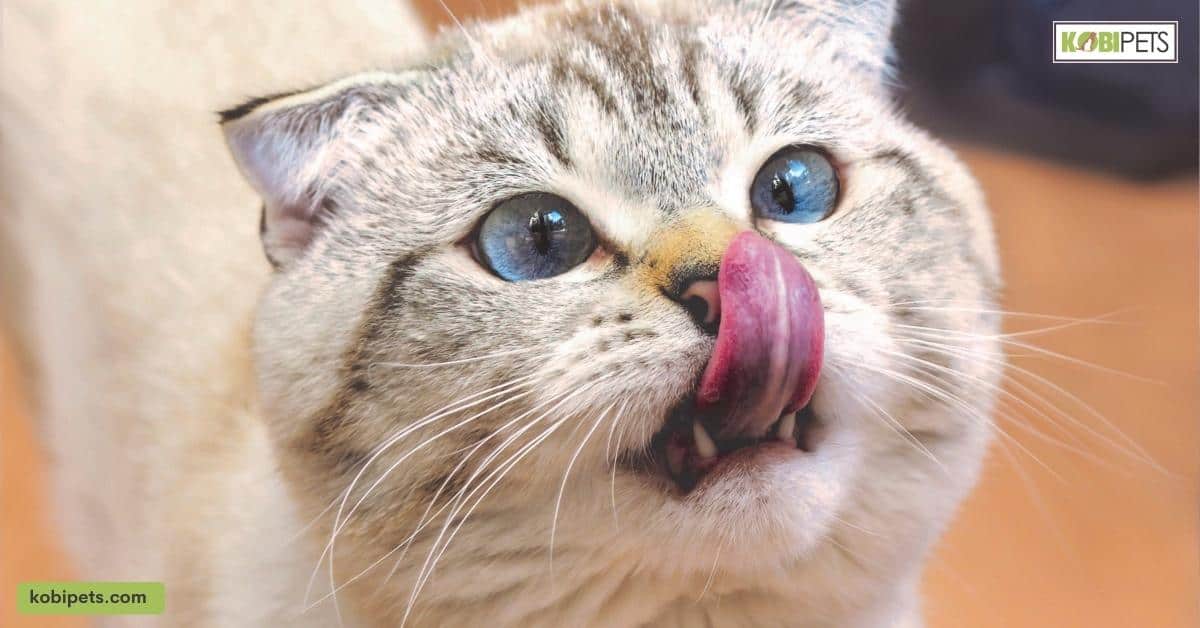
3. Medications
Side effects of certain drugs
Medications used to treat a variety of medical issues that cause excessive urination in cats can come with a range of side effects. Common drugs used to regulate urinary tract health often interfere with the kidney’s ability to absorb certain electrolytes, leading to lethargy and digestive upset.
Other possible adverse effects include joint pain, muscle weakness, and dry skin. In extreme cases, medications used for the treatment of excessive urination in cats have even been linked to pancreatitis and anemia.
Before making treatment decisions for your pet, be sure to discuss the full list of potential side effects with your veterinarian. They can then work with you to plan the best course of action for your individual cat’s case.
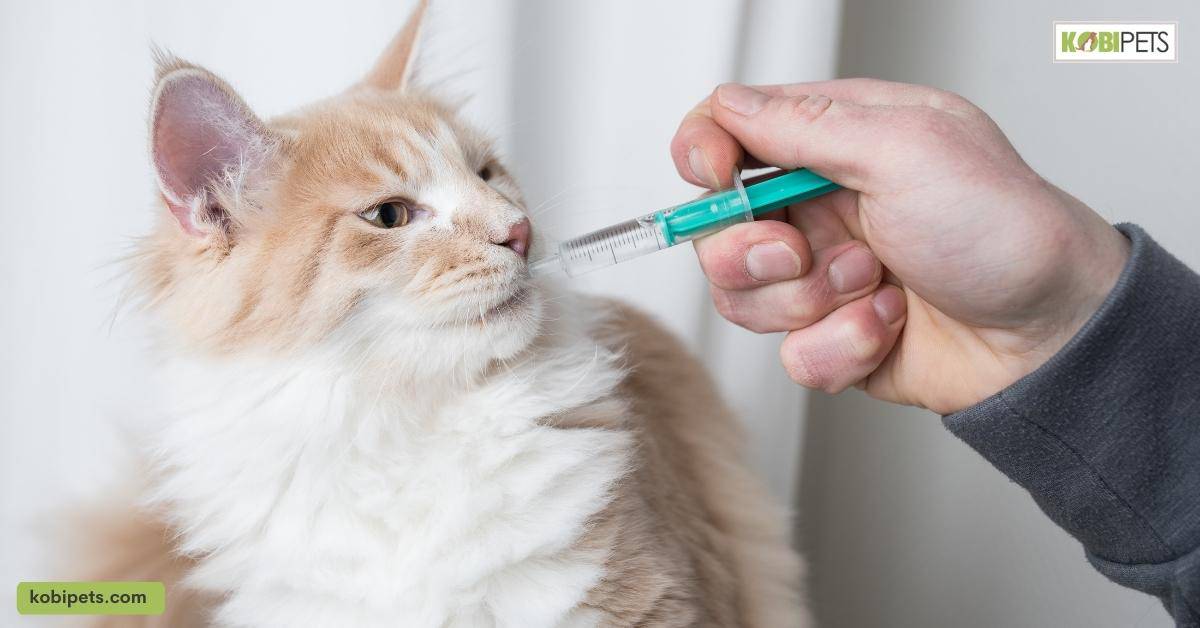
Interactions with other medications
When attempting to treat excessive urination in cats, it is vital that the specific medications used to be chosen and monitored carefully. This is especially true where interactions with other drugs are considered, as certain combinations of medication can lead to unpredictable and unexpected side effects.
For this reason, all drugs should be discussed with a qualified veterinarian before they are administered, so that the cat’s current health can be taken into account and any risks can be evaluated upfront.
Giving your pet the best care possible involves understanding the full range of available treatments and weighing them against other considerations such as cost and safety – keeping this in mind is an important part of ensuring that your cat remains healthy.
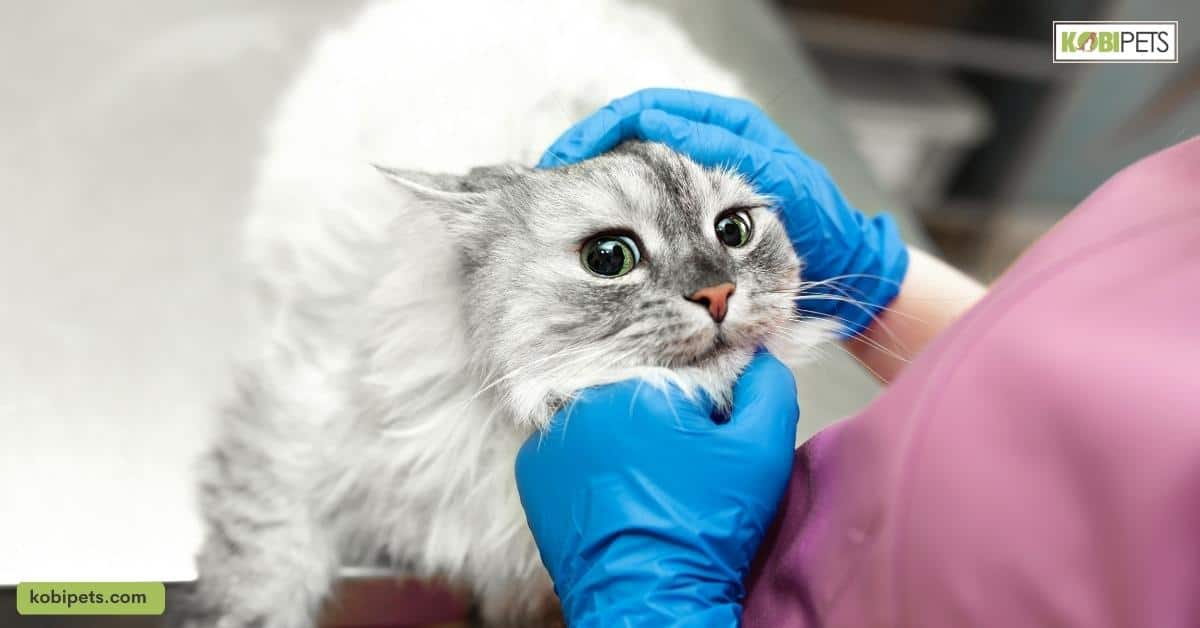
Behavioral Causes of Excessive Urination in Cats
Stress and Anxiety
Excessive urination in cats can often be caused by stress and anxiety, leading to uncomfortable or even dangerous health consequences. The exact cause of a cat’s stress can vary, but common factors include changes in the animal’s home environment, such as new people or pets moving in; a change in their diet; lack of exercise; or boredom.
It is important that owners provide a safe, secure environment with plenty of mental stimulation for their furry friends to keep them from feeling threatened or isolated.
Adjusting feeding schedules, providing more litter options and boxes for multiple cats, enforcing regular playtime and exercise sessions, offering perches for ascending and activities like puzzle feeders can all help minimize the negative effects of stress on cats’ urinary habits.
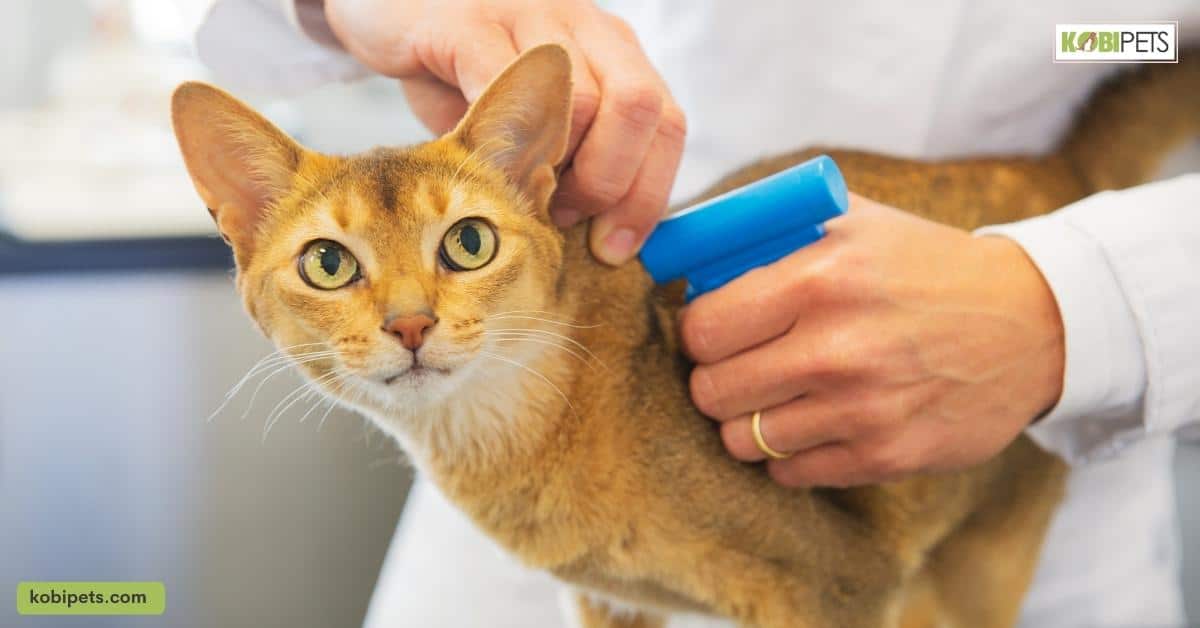
Marking Territory
Cats have a natural instinct to mark territory in order to establish their dominance and control over their environment. Unfortunately, this behavior can lead to cats excessively urinating on furniture or clothing, leaving owners feeling frustrated.
To combat this issue, it is important for cat owners to find ways to reduce the stressors that can contribute to territorial marking behavior in cats. Some techniques include providing scratching posts and tolerating short-lived misbehaviors such as using them as training opportunities instead of punishing them.
Regular playtime will also help distract your cat from the urge of spraying and ultimately keep your home clean.
Not Using the Litter Box Properly
When it comes to cats who are not using the litter box properly, behavioral issues may be the root cause. Many of these behavior-related issues, and ultimately aberrant urination, can often be improved through environmental accommodations and preventive measures such as routine checkups with veterinarians.
For example, cats that feel crowded or confined may act out and seek other places to eliminate them. Cats in multi-cat households might benefit from having multiple accessible litter boxes so that they don’t have to compete for access.
Additionally, there may be medical conditions causing sudden changes in litter box use. Recognizing potential causes involving diet, hormones, psychological stressors, or discomfort is important in addressing abnormal urinating behaviors.
Furthermore, cats should always have easy access to clean water and a balanced diet as well as plenty of playtimes which will help cats stay mentally and physically healthy!
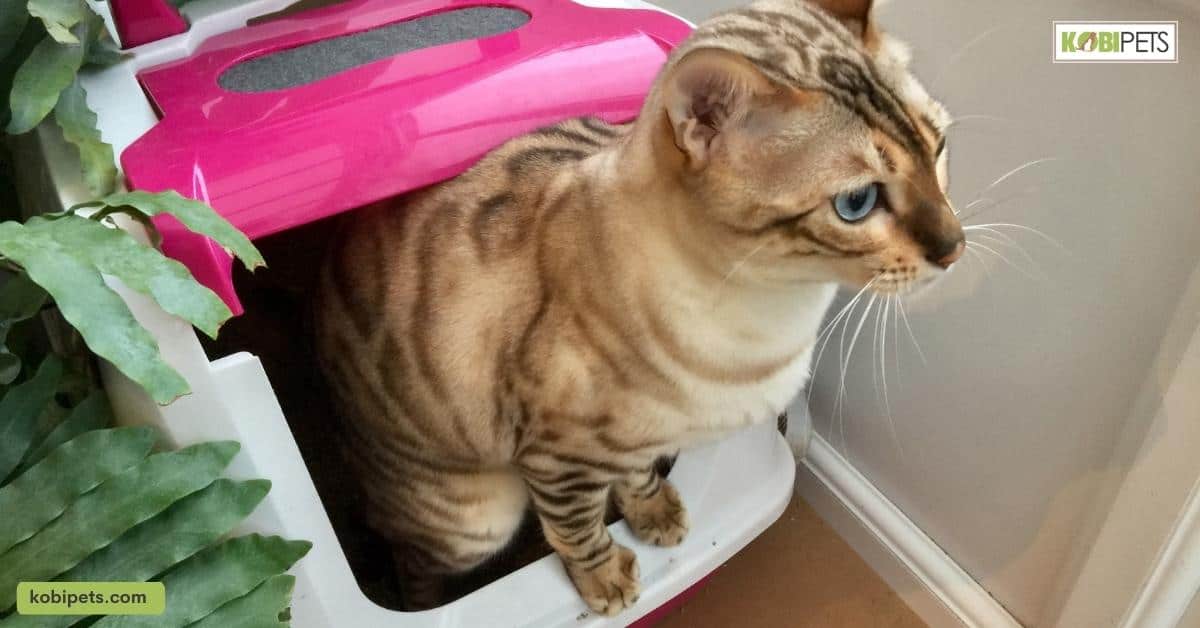
How to Identify the Cause
Observing Your Cat’s Behavior and Symptoms
When trying to identify the cause of an issue or illness affecting your cat, observing its behavior and symptoms can be invaluable. From changes in appetite and thirst, level of activity, vocalizations, and litter box habits, there’s a wealth of useful information you can use to help guide you toward the correct diagnosis.
Keeping track of any changes you observe can help you provide your veterinarian with better insights into what might be wrong, so be sure to diligently note down any defining details that may arise.
Utilizing both your own observations as well as the expertise of a professional is one of the easiest ways to ensure that your feline friend gets the care they need and deserves.
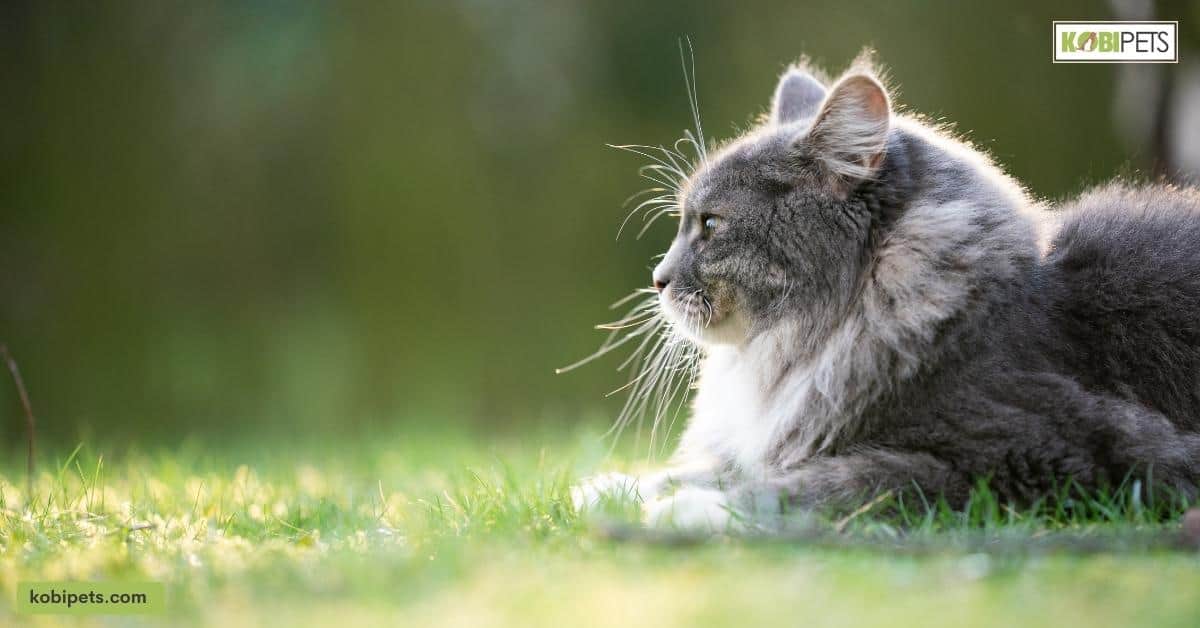
Taking Your Cat to the Vet for a Check-up
Regular veterinarian check-ups for cats are essential to maintaining their health. During these visits, the vet completes a physical exam and administers any necessary vaccines. A general check-up gives your vet the opportunity to look for signs that might indicate potential problems in your kitty’s health such as weight loss, skin issues, behavior changes, or other abnormalities.
Your vet can then do further testing and make a diagnosis if necessary. An annual physical is especially important for cats as common illnesses such as kidney disease can often have no signs until it’s too late.
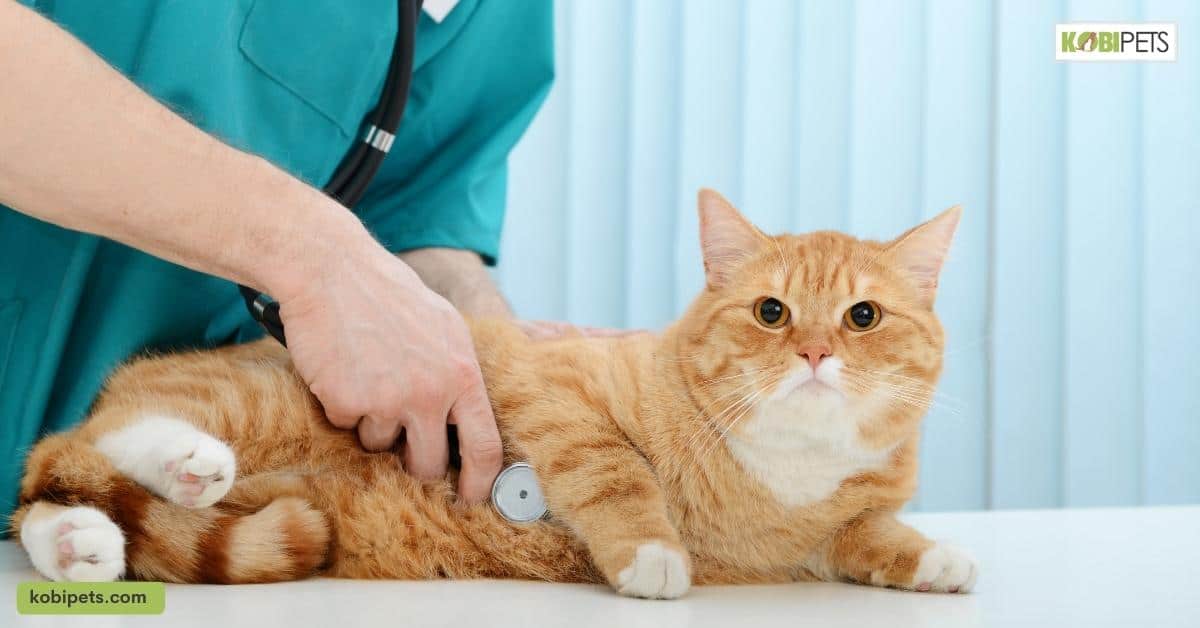
Diagnostic tests (urinalysis, blood work, etc.)
During a check-up, medical professionals often use diagnostic tests such as urinalysis, blood work, and other screenings to help them identify the cause of the patient’s symptoms. These tests can detect infections, inflammation, irregularities in hormone levels, and other possible causes.
It is important to answer all questions honestly during check-ups; with accurate information, these diagnostic tests will be more effective in helping to pinpoint the cause of an illness or injury. Depending on the results received from these tools, further testing may be recommended for more detailed diagnostics.
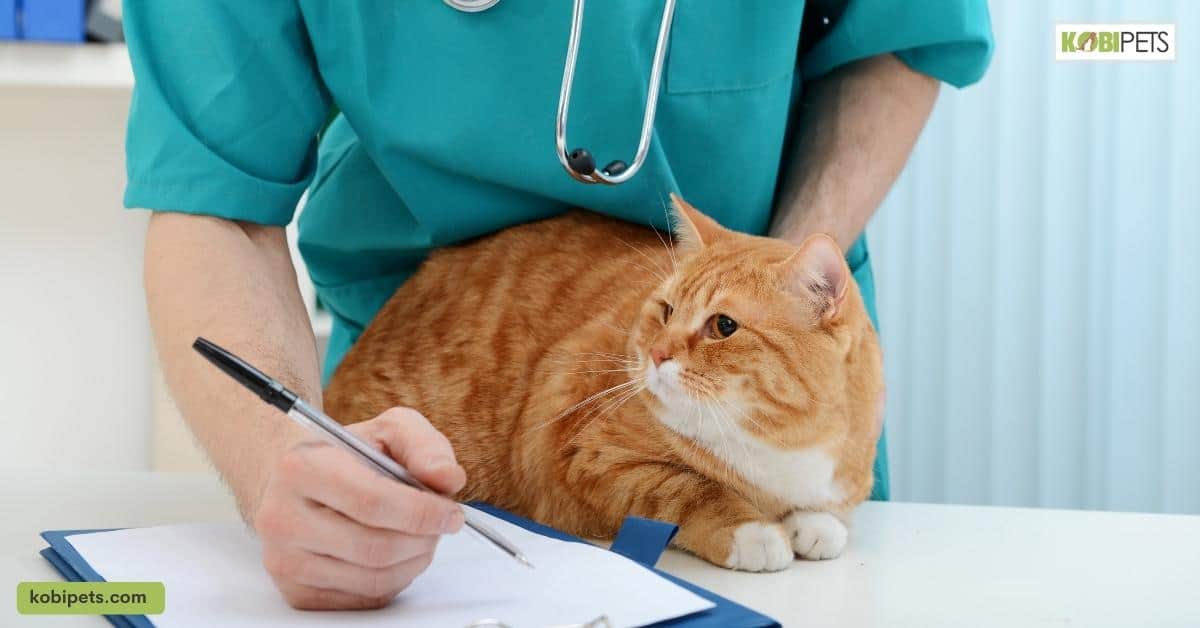
Treatment and Prevention
Medical treatment for underlying conditions
Medical treatment for underlying conditions can be highly effective in treating and preventing them from worsening. Taking medication as prescribed by a doctor is key for controlling chronic diseases, such as diabetes or high blood pressure, and ensuring that those who have contracted an infection have the resources to fight off the virus and maintain their health.
Regular check-ups with a primary care provider are also beneficial for keeping tabs on chronic conditions and any changing symptoms which may require additional intervention. Receiving medical care at an early stage could prevent serious complications from occurring, while also providing long-term management of the condition.
Thus, regular medical treatment is an integral part of the successful cure and management of illnesses so that everyone can remain in optimal health.
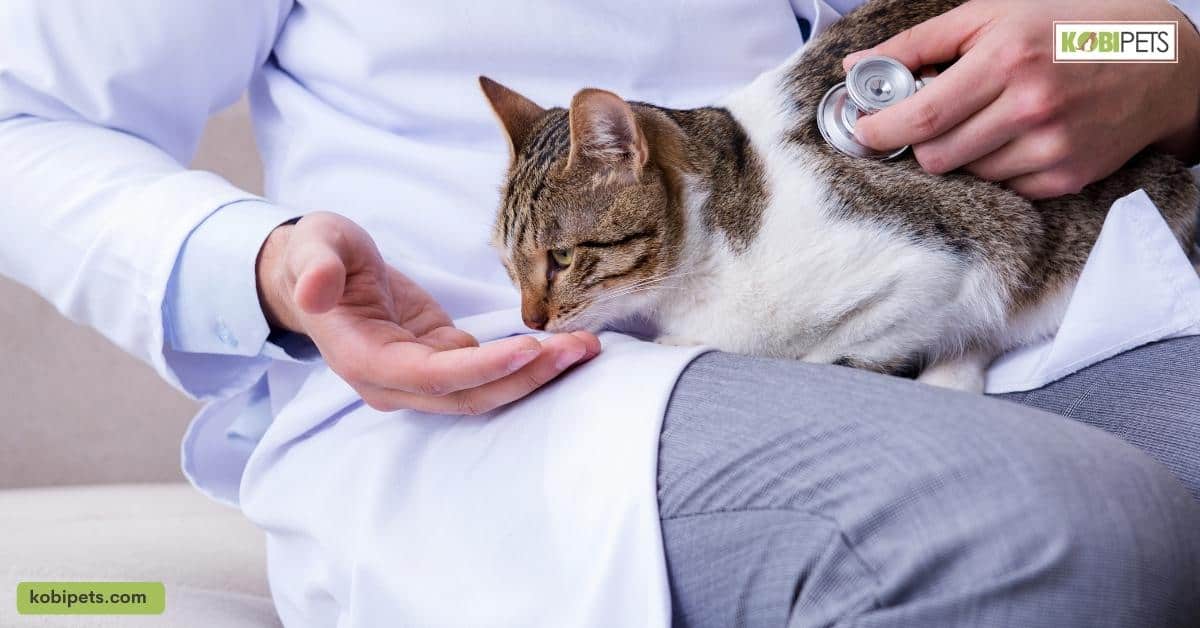
Lifestyle and environmental changes to reduce stress
Making healthy lifestyle changes is essential for the treatment and prevention of stress-related issues. Regular physical activity helps reduce both acute and chronic levels of stress significantly and also provides mood-boosting benefits.
Eating a nutritious diet and avoiding caffeine, nicotine, and stimulants are additional ways to aid in the control of stress. Additionally, getting a regular amount of sleep can help regulate hormones that manage our stress response system.
Also, taking time out of your daily life to relax or do something that you find enjoyable can be beneficial in reducing or preventing feelings of frustration or anxiety. Lastly, increasing social networks and engaging in meaningful interpersonal relationships will also decrease feelings of loneliness or isolation which can further impact how your body deals with stress.
Thus emphasizing the multiple protective measures you can take to improve health and well-being through lifestyle changes.
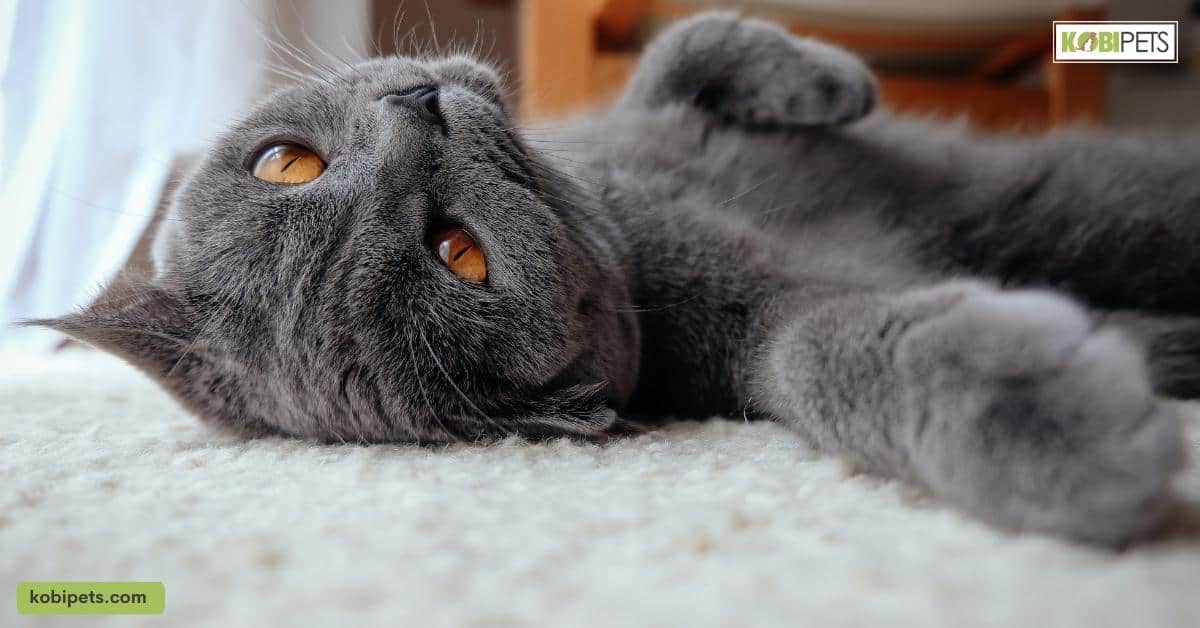
Encouraging your cat to drink more water
One of the most important things for cats is hydration. By encouraging them to drink more water, owners and veterinarians can help them stay healthy and avoid dehydration-related illnesses.
Providing a variety of drinking options is a great way to help cats get enough water. This could include regularly replacing their water bowl with fresh, clean water, refilling a pet fountain, or adding some cat-friendly flavored liquid or wet food to their diets.
Cats may also enjoy “playing” in shallow dishes of warm tap water or be attracted to dripping faucets as a source of hydration. Additionally, introducing cats to an oral syringe can make them more comfortable taking medications with added liquids that contain electrolytes.
Making sure your cat is adequately hydrated can help battle illness symptoms and give them a better quality of life.
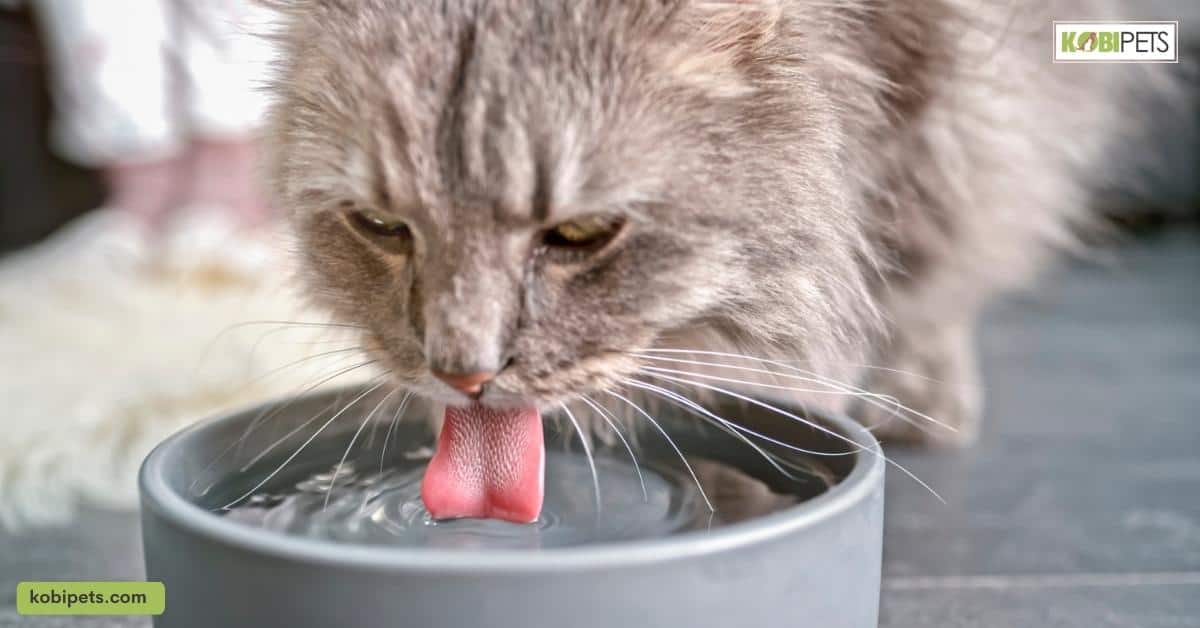
Regular vet check-ups to monitor progress and ensure the ongoing health
Regular check-ups with the veterinarian are key to the well-being of your pet. Through a comprehensive examination, the vet will be able to monitor any existing health problems and assess their progress.
Furthermore, it can identify seemingly innocuous physical changes that could indicate underlying issues or diseases. It is also an opportunity for veterinarians to provide treatments and preventive care for your pet such as vaccinations and parasite prevention.
Keeping up with regular vet visits allows your pet to stay in optimal health and ensures that any potential problems are identified quickly so treatment can be administered as soon as possible.
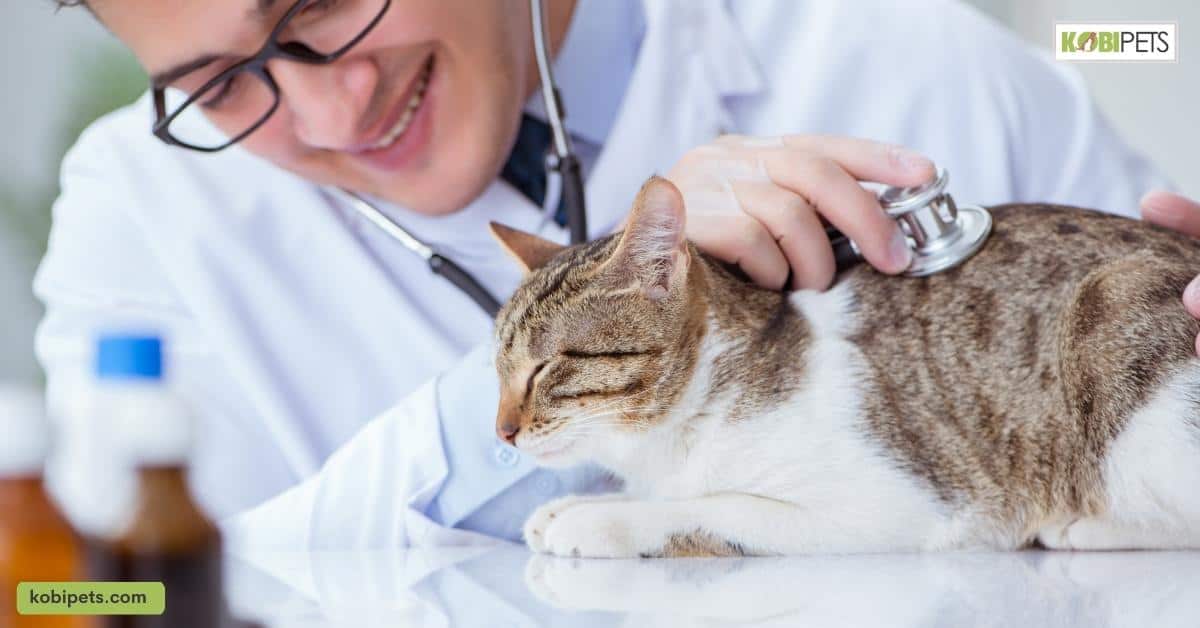
In Conclusion
Excessive urination in cats can be caused by a variety of factors and it is essential that owners understand the full range of potential causes so they can properly address the issue. By taking into account both medical and behavioral causes, owners can work with their veterinarian to determine the best course of action to treat and prevent underlying or newly developed conditions.
Regular check-ups, lifestyle changes, and hydration are all important components to keeping cats healthy and happy. With the right care and treatment plan, cats can enjoy a life free of excessive urination and related symptoms.
